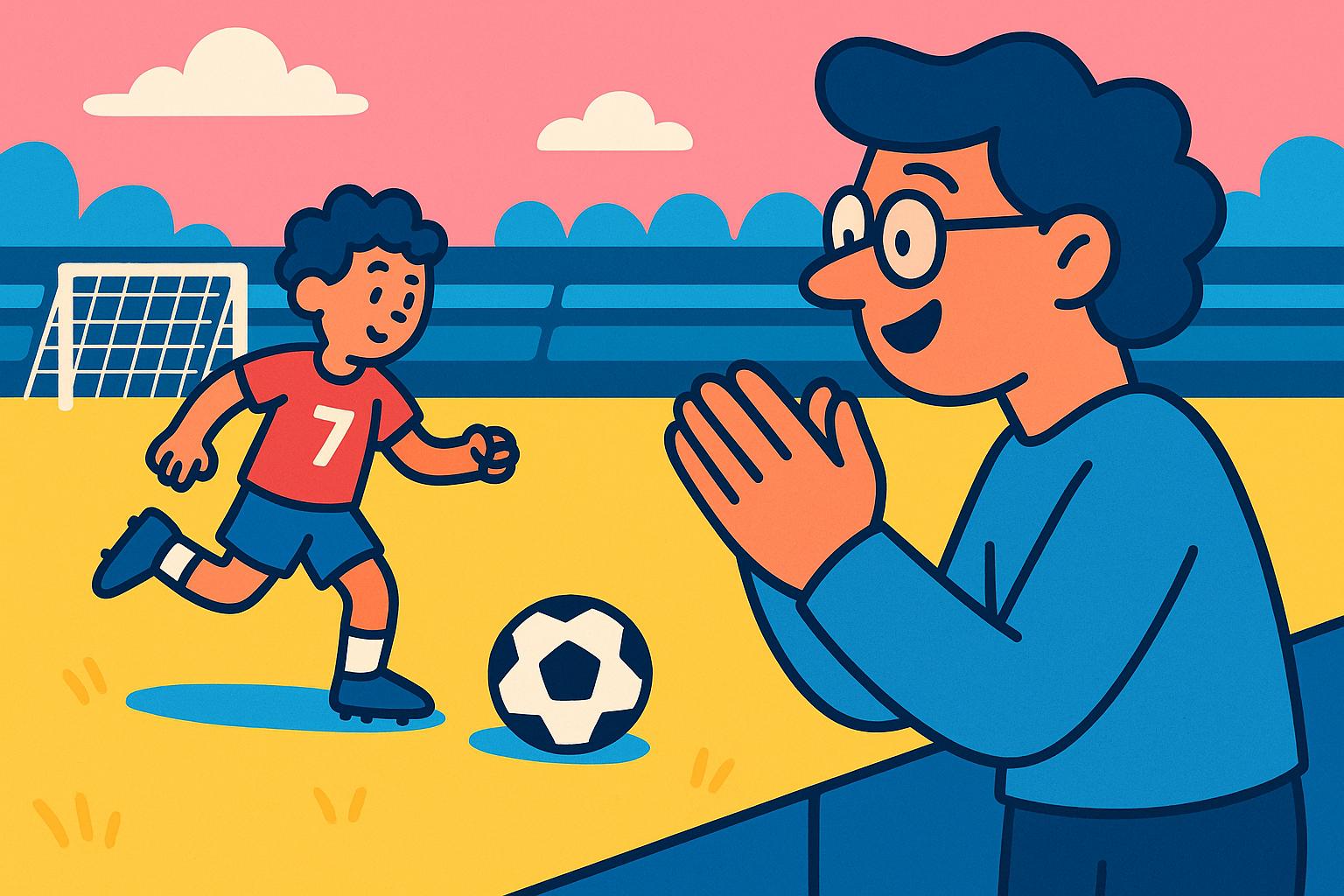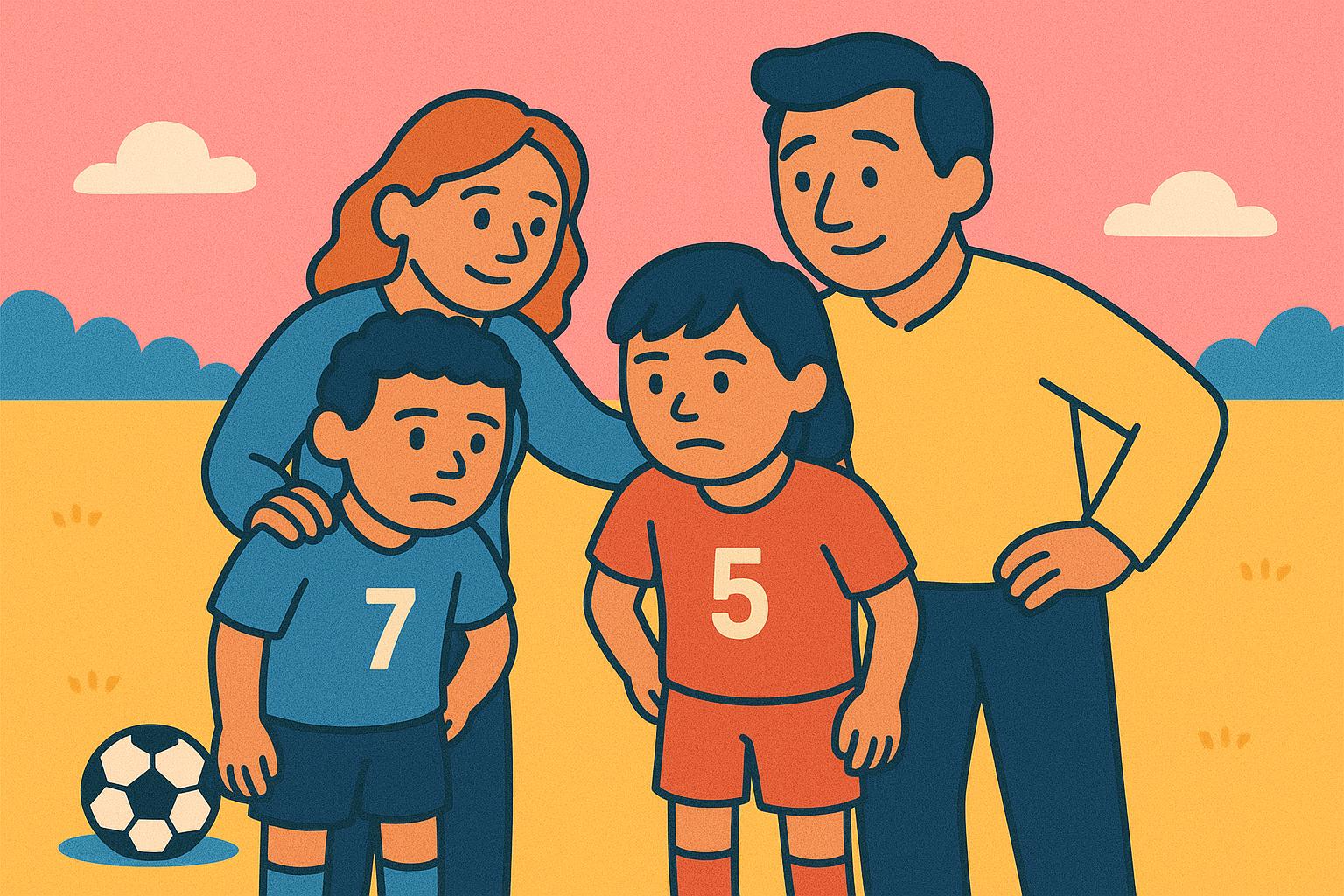
From the Sidelines to Support: A Parent’s Role in Youth Sports
If there’s one thing every parent can do to make their child’s team experience better, it’s this: be on time and be prepared. Nothing sets a young soccer player or performer up for success more than arriving ready to go. When a child shows up late or without the right gear, it doesn’t just affect them—it disrupts the coach’s plan and lets down teammates who are counting on everyone to be present. Punctuality and readiness may seem like small details, but they are the foundation of commitment and responsibility. Kids learn those habits when parents make them non-negotiables.
💬 Coach’s Tip: The most powerful support a parent can give often happens before the game starts. Get your child there early, ready, and equipped.
Right behind punctuality comes the practical support that keeps a group running smoothly. Teams thrive when parents organize snacks, help with transportation, and lend a hand with setup. These acts may not make headlines, but they make everything else possible. I’ve seen groups flourish because families took ownership of these responsibilities and created an environment where the players could simply focus on the game. That quiet reliability teaches kids what teamwork looks like in real life—everyone doing their part for the good of the whole.
I often rely on tools like Coach Blitz to share schedules and reminders, but no system works unless parents honor those commitments. When you’re dependable with time, rides, and snacks, you make the whole team better.

Respectful conduct on the sidelines is equally vital. Children notice how adults react under pressure. When parents yell instructions from the stands, it usually confuses the players. They’re already juggling the coach’s directions and the pace of the soccer game—they don’t need competing voices. What helps most is steady encouragement and positive energy.
And when it comes to referees, many are young volunteers learning responsibility themselves. A parent who thanks the officials after a game, even if the calls didn’t go their way, models maturity and sportsmanship. That’s the kind of behavior kids remember long after the score fades.
💬 Coach’s Advice: Let the coach coach. Your job on the sideline is to support—not to distract your child with extra instructions.
I’ve been part of teams that dominated their leagues and others that faced opponents who were simply stronger. The reality is that kids will experience both—moments of success and moments of disappointment. Resilience is what bridges those two. When a team comes up short, the lesson isn’t that losing is “good,” but that setbacks are temporary. With the right mindset, kids can look at what went wrong, find areas to improve, and come back stronger. Parents who encourage effort and perseverance help their children see challenges as opportunities rather than roadblocks.

Competitiveness has its place, but it should always fit the level of play. Recreational soccer leagues are about learning and enjoyment. Competitive teams carry higher expectations, but even then, kids perform best when they feel supported rather than pressured. Celebrate their resilience as much as their victories. Wins and losses pass quickly, but the ability to bounce back, keep perspective, and move forward is what lasts.
So if you want to know the most powerful way to support your child: start with punctuality and readiness, back it up with practical help like snacks and rides, and anchor everything in respect. And above all, teach them resilience—because whether they win or lose, the way they handle it will shape them more than the outcome ever could.
💬 Coach’s Takeaway:
- Be on time and prepared.
- Help with the little things that keep the team running.
- Model respect and teach resilience.
— The Coach